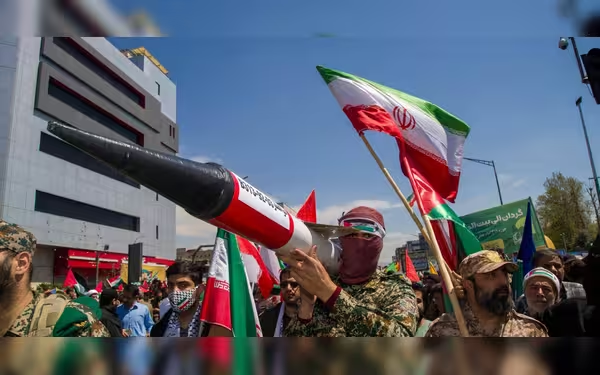Sunday, July 7, 2024 12:33 PM
Iran's Retaliatory Strike Shifts Middle East Alliances
- Iran showcases advanced military capabilities in targeted strike
- Middle East alliances reshaped as Jordan and Saudi Arabia side with Israel
- Global calls for restraint amid potential de-escalation of conflict
 Image Credits: Chatham House
Image Credits: Chatham HouseIran's retaliatory strike against Israel showcases advanced military capabilities, reshapes Middle East alliances, and highlights the delicate power balance in the region amidst global calls for restraint.
Iran launched a retaliatory strike against Israel, targeting military facilities in the Negev Desert and Golan Heights. The attack, consisting of drones, cruise missiles, and ICBMs, was carefully orchestrated to avoid escalating into a wider regional conflict. Despite warnings to Israel's foreign backers and the selection of military targets away from civilian centers, the strike demonstrated Iran's capability to breach Israel's air defense systems.
The strike, a response to the Damascus embassy attack, has reshaped alliances in the Middle East. While Jordan and Saudi Arabia have aligned with Israel, Iran has garnered support from Syria, Iraq, and Lebanon. The use of advanced munitions by Iran has challenged Israel's perceived invincibility and emboldened resistance movements in the region.
With global calls for restraint and indications that the conflict may de-escalate, the strike serves as a reminder of the volatile dynamics in the Middle East. Iran's strategic approach and the international response highlight the delicate balance of power in the region, with implications for future engagements.













